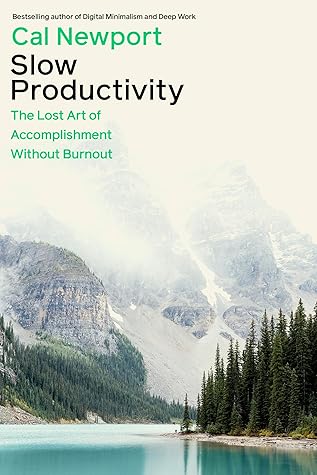More on this book
Community
Kindle Notes & Highlights
by
Cal Newport
Read between
April 14 - April 17, 2024
accomplishment without burnout not only is possible, but should be the new standard.
Without concrete productivity metrics to measure and well-defined processes to improve, companies weren’t clear how they should manage their employees. And as freelancers and small entrepreneurs in the sector became more prevalent, these individuals, responsible only for themselves, weren’t sure how they should manage themselves. It was from this uncertainty that a simple alternative emerged: using visible activity as a crude proxy for actual productivity.
I think that’s where the burnout really hurts—when you want to care about something but you’re removed from the capacity to do the thing or do it properly and give it your passion and full attention and creativity because you’re expected to do so many other things.
To embrace slow productivity, in other words, is to reorient your work to be a source of meaning instead of overwhelm, while still maintaining the ability to produce valuable output.
it’s hard to maintain five or more missions without the feeling you’re drowning in unavoidable work.
No amount of clever time management or streamlining tactics can keep the work required to maintain ten missions tractable.
saying no isn’t so bad if you have hard evidence that it’s the only reasonable answer.
Small tasks, in sufficient quantity, can act like productivity termites, destabilizing the whole foundation of what you’re trying to build.
Knowledge work was free to totalize our existence: colonizing as much of our time, from evenings to weekends to vacations, as we could bear, and leaving little recourse beyond burnout or demotion or quitting when it became too much. Our estrangement from the rhythms of work that dominated the first two hundred eighty thousand years of our species’ existence was now complete.
“Deciding what not to do is as important as deciding what to do,”16 Jobs explained.
We’ve become so used to the idea that the only reward for getting better is moving toward higher income and increased responsibilities that we forget that the fruits of pursuing quality can also be harvested in the form of a more sustainable lifestyle.
Slowing down isn’t about protesting work. It’s instead about finding a better way to do it.


